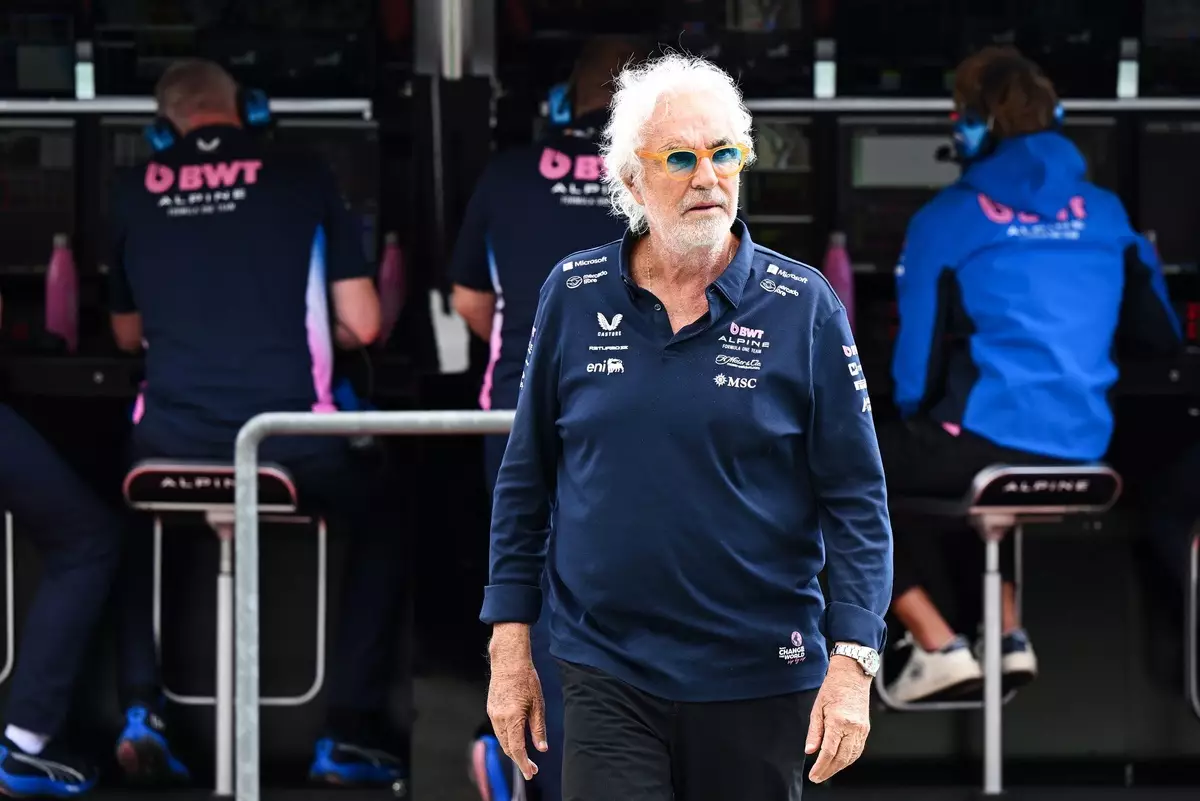Flavio Briatore, a name synonymous with both victory and scandal in the world of Formula 1, has returned to the paddock, bringing with him a relentless ambition that could redefine Alpine’s trajectory in the sport. At the age of 75, Briatore stands as both an executive advisor and a pivotal figure in the team’s current restructuring. His recent assertions carry the weight of his storied past—he is not only a strategist but also a seasoned veteran who understands the complex dynamics of racing at the highest level. With his bold declarations that Alpine has “no excuses” and must aim for victories in 2026, he is not just throwing promises into the wind; he is laying down a challenge for both his team and the entire paddock.
Turning Promises into Performance
Alpine’s journey in the 2025 season has been far from smooth, with only seven points accumulated thus far. To add to the tumult, the team has recently replaced Jack Doohan with Franco Colapinto, signaling a shift in strategy and perhaps a desperate need to find a competitive edge. Briatore’s call for Alpine to strengthen their performance as the 2026 regulations loom is not just aspirational but almost prophetic. “We owe it to Renault and to ourselves,” he says, embodying the spirit of a leader who refuses to settle for mediocrity. This isn’t merely about ambition; it’s about a complete turnaround in strategy as a new era unfurls.
The anticipation surrounding the new regulations enhances Briatore’s insistence on accountability. Teams are expected to interpret these complex changes effectively, and his confidence in Alpine’s future hinges on this vital adaptation. It raises important questions about how well the team can gauge and implement these new rules, especially in an environment characterized by rapid technological advances and fierce competition.
The Power Shift: Mercedes and the Road Ahead
One of Briatore’s most significant decisions has been the switch to Mercedes power units starting in 2026, a pivot that signifies not just a technological upgrade but a decisive strategic maneuver in the highly competitive world of F1. The departure of Renault from Formula 1 has pushed Alpine to seek an ally that promises more than just performance—it’s about leveling the playing field. “Choosing to switch to Mercedes power was a very difficult decision,” Briatore admitted, showcasing not only his tactical mindset but the historical burden that Alpine has carried in the engine department.
While the “easiest way to win” would be to sign a superstar driver like Max Verstappen—a statement that captures both his self-awareness and humor—the reality is that winning in F1 involves a synergy of car performance, driver skill, and team strategy. Briatore is focusing on making the right choices within the constraints of what is feasible. His pragmatic approach addresses an essential truth in racing: sometimes the best path to victory is less about dream acquisitions and more about maximizing existing talent and resources.
A Legacy Reshaped
Briatore’s past is punctuated with both remarkable achievements and significant controversy, not least the infamous ‘Crashgate’ scandal that saw him banned from the sport. Nonetheless, his return after legal battles reinstated him as a key figure in Alpine’s strategy. His deep experience with the likes of Michael Schumacher and Fernando Alonso equips him with invaluable insight that few can match in the current F1 landscape. Yet, the question remains—can a figure so steeped in controversy truly influence a fresh narrative for a team in need of renewal?
As Alpine navigates the intricacies of both team dynamics and competitive strategies, Briatore claims a hands-on approach, asserting his commitment to operational matters. “I’m 100% committed,” he declares, indicating not merely willingness but an expectation of thorough engagement with both technical and managerial teams. His belief in maintaining strong interpersonal dynamics within the team serves as a reminder that leadership in F1 transcends beyond technical strategy and includes the cultivation of a winning team culture.
In an arena where success is often gauged in fractions of a second, Briatore’s ambitions for Alpine resonate deeply. They are not merely about car upgrades and new regulations; they’re about a collective mindset—a refusal to accept anything less than the very best. Whether this legacy can be reshaped into one of triumph remains a question that only time and the racetrack will answer.

